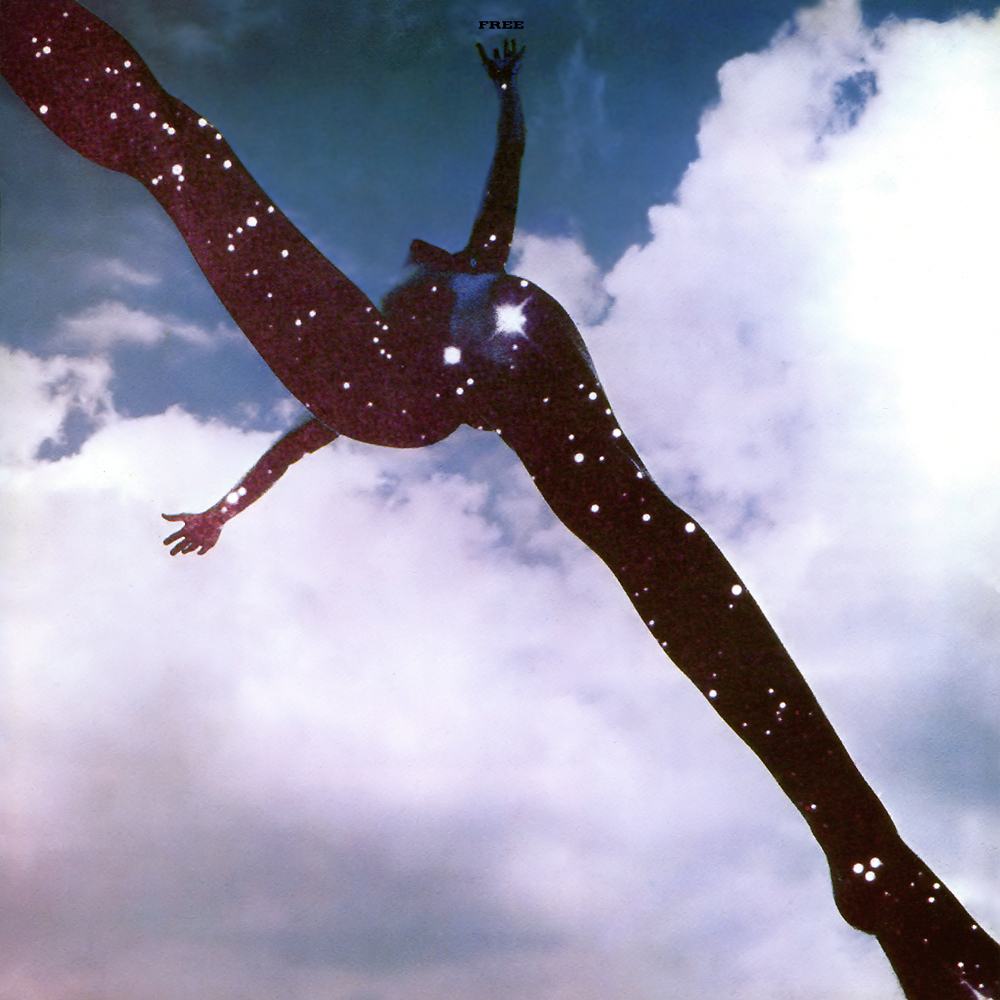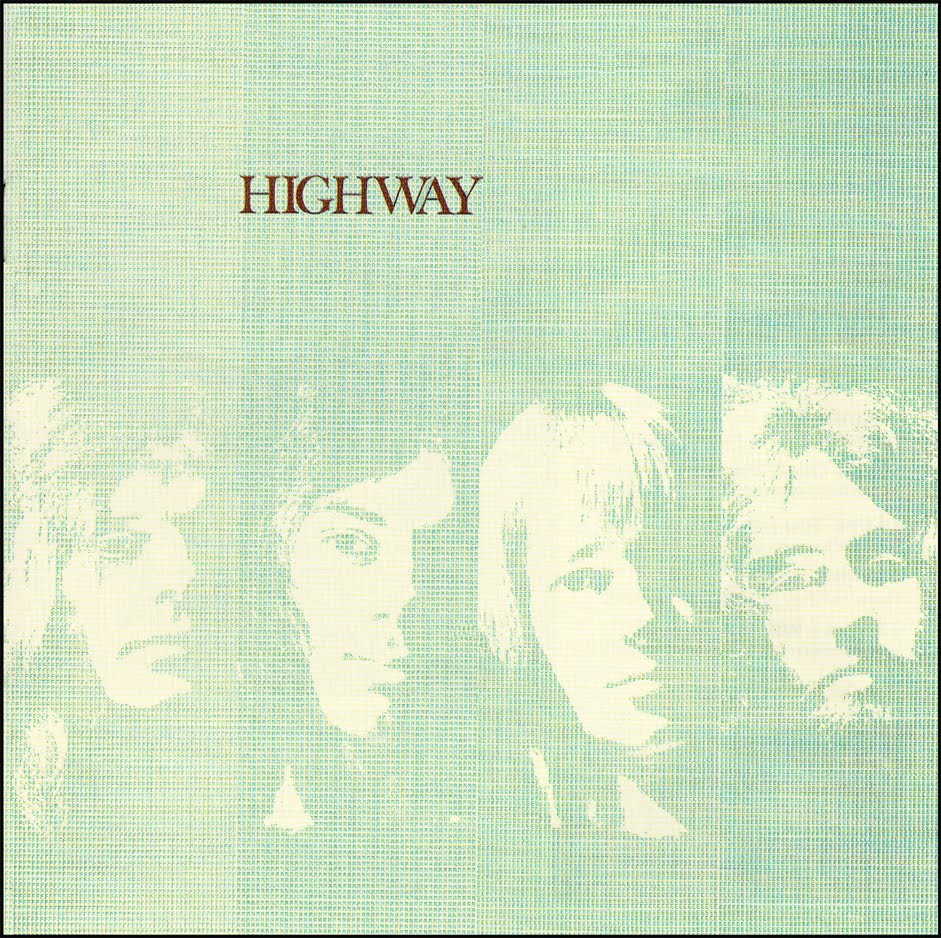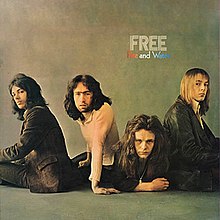
Rock and roll music
1970 studio album by Free
Fire and Water is the third studio album by English rock band Free, released in 1970. It became the band`s breakthrough album, achieving widespread commercial success as the band`s first two studio albums were not successful. With the "tremendous" acclaim of Fire and Water at their backs, in the words of AllMusic, Free headlined the 1970 Isle of Wight Festival with an estimated audience of 600,000 to 700,000 attendees and "appeared destined for superstardom".[2][3][4]
Leer másFire And Water
Free
Label: Island · Studios: Trident and Island, London · Productor: Free
|
1
|
Fire And Water
Free •
Free •
1970 /06
|
4:01 |
|
|
|
2
|
Oh I Wept
Free •
Free •
1970 /06
|
4:28 |
|
|
|
3
|
Remember
Free •
Free •
1970 /06
|
4:25 |
|
|
|
4
|
Heavy Load
Free •
Free •
1970 /06
|
5:20 |
|
|
|
5
|
Mr. Big
Free •
Free •
1970 /06
|
5:57 |
|
|
|
6
|
Don't Say You Love Me
Free •
Free •
1970 /06
|
6:02 |
|
|
|
7
|
All Right Now
Free •
Free •
w: Andy Fraser/Paul Rodgers •
1970 /06
|
5:34 |
|
Singles
No singles available
Review
1970 studio album by Free
Fire and Water is the third studio album by English rock band Free, released in 1970. It became the band`s breakthrough album, achieving widespread commercial success as the band`s first two studio albums were not successful. With the "tremendous" acclaim of Fire and Water at their backs, in the words of AllMusic, Free headlined the 1970 Isle of Wight Festival with an estimated audience of 600,000 to 700,000 attendees and "appeared destined for superstardom".[2][3][4]
Leer másFire and Water peaked at No. 2 on the U.K. album chart, being listed on it for a total of eighteen weeks. In contrast, neither of the band`s prior releases had charted at all.[5] Fire and Water additionally reached No. 17 in the U.S.[citation needed]
The album spawned the band`s signature hit song "All Right Now", praised by publications such as AllMusic as a hard rock "smash powered by [Paul] Rodgers` gritty, visceral vocals".[2] The song entered the top five within the group`s native country of the United Kingdom, and also did well in other European countries such as Austria, France, and Germany.[citation needed][5] "All Right Now" remains a staple track of classic rock radio.[6][7][8]
Background and production
Free with Steve Winwood in Amsterdam, 1970. From left to right: Winwood, Andy Fraser, Paul Rodgers, Simon Kirke, Paul Kossoff
The band formed in London in 1968, after guitarist Paul Kossoff of the blues band Black Cat Bones saw a performance that included frontman and lead singer Paul Rodgers. Free came into being once the duo joined up with drummer Simon Kirke and bassist Andy Fraser, the latter formerly from the ranks of John Mayall`s Bluesbreakers. Free`s debut album, titled Tons of Sobs, came out in 1968 to a muted response. The group`s eponymous 1969 follow-up, while expanding on the band`s mix of styles, also failed to achieve commercial success.[2] Neither album appeared in charts.[5]
Free recorded Fire and Water from January to June 1970 in London, the group using the engineering facilities of Island Studios and Trident Studios. Mike Sida devised the album`s cover image, with Richard Polak being the band`s photographer. Free produced the work, with assistance from others.[9]
Roy Baker contributed to the album`s production, providing particular help with the audio engineering. Before getting started with Free, he had worked with groups such as Savoy Brown and the Deviants in the 1960s. Since his association with Fire and Water, he has spent decades working with rock bands such as Byzantium, Hawkwind, Queen, and the Cars.[10]
Reception
| Review scores | |
|---|---|
| Source | Rating |
| AllMusic | [9] |
| Christgau`s Record Guide | B[11] |
| The Encyclopedia of Popular Music | [12] |
| MusicHound Rock: The Essential Album Guide | [13] |
| The Rolling Stone Album Guide | [14] |
Music critic Matthew Greenwald has written for AllMusic praising the album. He stated that by 1970 "Free presented itself to the world as a complete band, in every sense of the word", particularly with elements ranging from "Paul Kossoff`s exquisite and tasteful guitar work to Paul Rodgers` soulful vocals" on display for listeners. He also positively compared the group`s work with that of bands Blind Faith, Cream, and Derek and the Dominos.[9]
Track listing
All tracks written by Andy Fraser and Paul Rodgers unless otherwise stated. The details are taken from the Island CD reissue, which has accurate timings and may differ from other releases.
Side one
- "Fire and Water" – 3:57
- "Oh I Wept" (Rodgers, Paul Kossoff) – 4:26
- "Remember" – 4:23
- "Heavy Load" – 5:19
Side two
- "Mr. Big" (Fraser, Rodgers, Simon Kirke, Kossoff) – 5:55
- "Don`t Say You Love Me" – 6:01
- "All Right Now" – 5:32
Reissue bonus tracks
- "Oh I Wept" – 4:22
- Alternate vocal
- "Fire and Water" – 4:24
- Stereo mix
- "Fire and Water" – 3:08
- BBC session
- "All Right Now" – 5:29
- BBC session
- "All Right Now" – 4:18
- single version
- "All Right Now" – 3:31
- early version
Personnel
Free
- Paul Rodgers – vocals
- Paul Kossoff – guitars
- Andy Fraser – bass, acoustic guitar, piano
- Simon Kirke – drums, percussion
Charts
| Chart (1970) | Peak position |
|---|---|
| Australian Albums (Kent Music Report)[15] | 25 |
| Finnish Albums (The Official Finnish Charts)[16] | 17 |
| German Albums (Offizielle Top 100)[17] | 30 |
| Norwegian Albums (VG-lista)[18] | 19 |
| UK Albums (OCC)[19] | 2 |
| US Billboard 200[20] | 17 |
1970 studio album by Free
Fire and Water is the third studio album by English rock band Free, released in 1970. It became the band`s breakthrough album, achieving widespread commercial success as the band`s first two studio albums were not successful. With the "tremendous" acclaim of Fire and Water at their backs, in the words of AllMusic, Free headlined the 1970 Isle of Wight Festival with an estimated audience of 600,000 to 700,000 attendees and "appeared destined for superstardom".[2][3][4]
Fire and Water peaked at No. 2 on the U.K. album chart, being listed on it for a total of eighteen weeks. In contrast, neither of the band`s prior releases had charted at all.[5] Fire and Water additionally reached No. 17 in the U.S.[citation needed]
The album spawned the band`s signature hit song "All Right Now", praised by publications such as AllMusic as a hard rock "smash powered by [Paul] Rodgers` gritty, visceral vocals".[2] The song entered the top five within the group`s native country of the United Kingdom, and also did well in other European countries such as Austria, France, and Germany.[citation needed][5] "All Right Now" remains a staple track of classic rock radio.[6][7][8]
Background and production
Free with Steve Winwood in Amsterdam, 1970. From left to right: Winwood, Andy Fraser, Paul Rodgers, Simon Kirke, Paul Kossoff
The band formed in London in 1968, after guitarist Paul Kossoff of the blues band Black Cat Bones saw a performance that included frontman and lead singer Paul Rodgers. Free came into being once the duo joined up with drummer Simon Kirke and bassist Andy Fraser, the latter formerly from the ranks of John Mayall`s Bluesbreakers. Free`s debut album, titled Tons of Sobs, came out in 1968 to a muted response. The group`s eponymous 1969 follow-up, while expanding on the band`s mix of styles, also failed to achieve commercial success.[2] Neither album appeared in charts.[5]
Free recorded Fire and Water from January to June 1970 in London, the group using the engineering facilities of Island Studios and Trident Studios. Mike Sida devised the album`s cover image, with Richard Polak being the band`s photographer. Free produced the work, with assistance from others.[9]
Roy Baker contributed to the album`s production, providing particular help with the audio engineering. Before getting started with Free, he had worked with groups such as Savoy Brown and the Deviants in the 1960s. Since his association with Fire and Water, he has spent decades working with rock bands such as Byzantium, Hawkwind, Queen, and the Cars.[10]
Reception
| Review scores | |
|---|---|
| Source | Rating |
| AllMusic | [9] |
| Christgau`s Record Guide | B[11] |
| The Encyclopedia of Popular Music | [12] |
| MusicHound Rock: The Essential Album Guide | [13] |
| The Rolling Stone Album Guide | [14] |
Music critic Matthew Greenwald has written for AllMusic praising the album. He stated that by 1970 "Free presented itself to the world as a complete band, in every sense of the word", particularly with elements ranging from "Paul Kossoff`s exquisite and tasteful guitar work to Paul Rodgers` soulful vocals" on display for listeners. He also positively compared the group`s work with that of bands Blind Faith, Cream, and Derek and the Dominos.[9]
Track listing
All tracks written by Andy Fraser and Paul Rodgers unless otherwise stated. The details are taken from the Island CD reissue, which has accurate timings and may differ from other releases.
Side one
- "Fire and Water" – 3:57
- "Oh I Wept" (Rodgers, Paul Kossoff) – 4:26
- "Remember" – 4:23
- "Heavy Load" – 5:19
Side two
- "Mr. Big" (Fraser, Rodgers, Simon Kirke, Kossoff) – 5:55
- "Don`t Say You Love Me" – 6:01
- "All Right Now" – 5:32
Reissue bonus tracks
- "Oh I Wept" – 4:22
- Alternate vocal
- "Fire and Water" – 4:24
- Stereo mix
- "Fire and Water" – 3:08
- BBC session
- "All Right Now" – 5:29
- BBC session
- "All Right Now" – 4:18
- single version
- "All Right Now" – 3:31
- early version
Personnel
Free
- Paul Rodgers – vocals
- Paul Kossoff – guitars
- Andy Fraser – bass, acoustic guitar, piano
- Simon Kirke – drums, percussion
Charts
| Chart (1970) | Peak position |
|---|---|
| Australian Albums (Kent Music Report)[15] | 25 |
| Finnish Albums (The Official Finnish Charts)[16] | 17 |
| German Albums (Offizielle Top 100)[17] | 30 |
| Norwegian Albums (VG-lista)[18] | 19 |
| UK Albums (OCC)[19] | 2 |
| US Billboard 200[20] | 17 |
More Albums same artist
Free - Fire And Water (1970) · Channel: Beat-Club · 3m 54s


Oh I Wept · Channel: Free - Topic · 4m 27s

Remember · Channel: Free - Topic · 4m 25s
Free - Heavy Load · Channel: ItsGaryMan · 5m 31s

FREE - Mr. Big (Doing Their Thing, 1970) Official Live Video · Channel: Free Band · 5m 59s
Free - Don't Say You Love Me · Channel: ItsGaryMan · 6m 11s






